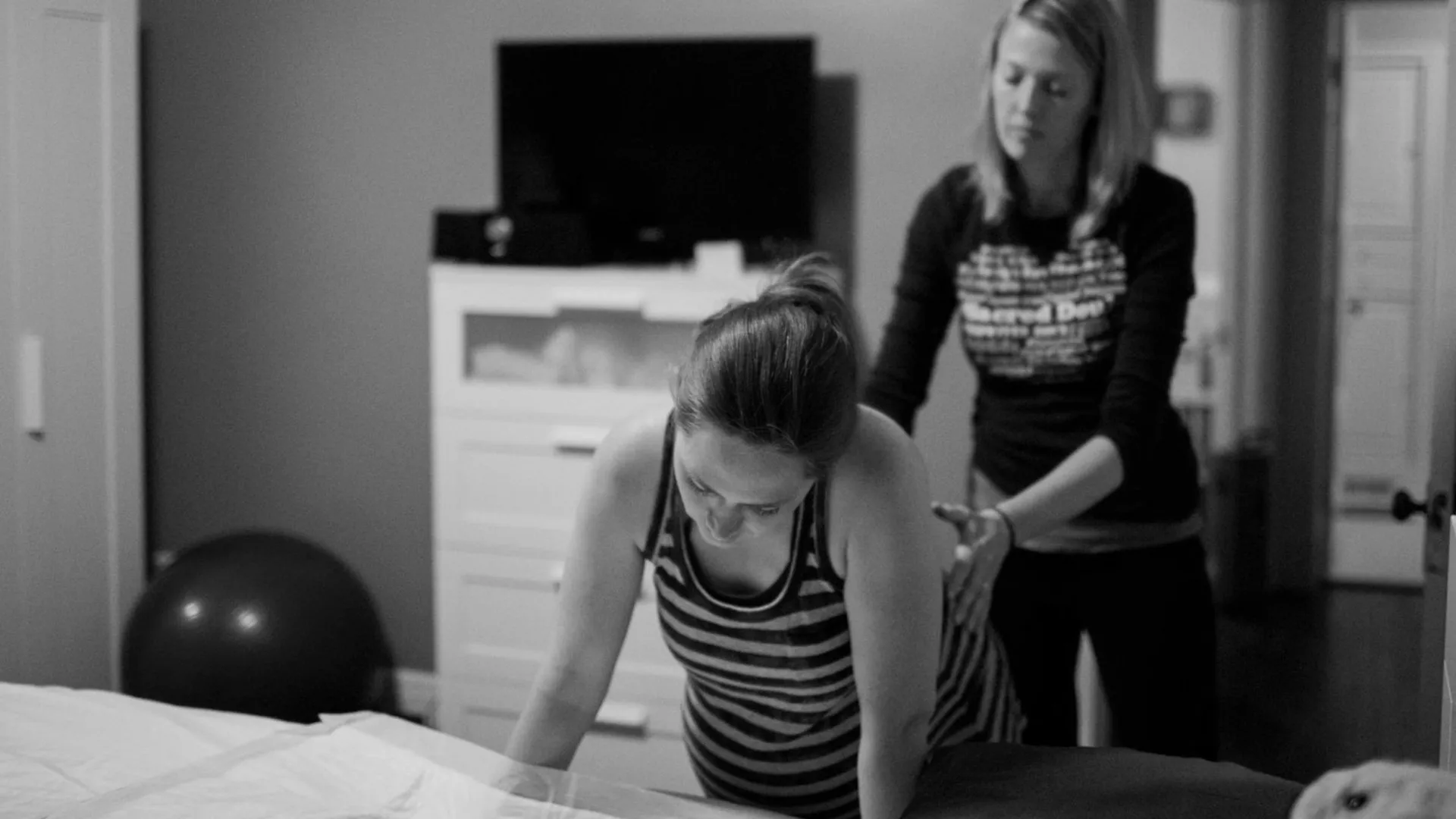
Birth Doula vs Midwife: Here’s What Each Does
Assembling your team for pregnancy and birth is probably one of the most important things you can do when expecting. The two most common (and essential!) team players you’ll hear tons about are birth doulas and midwives. Both professionals work very closely with pregnant women, providing care, support, and guidance throughout pregnancy, birth, and the early days with their newborn.
But even though they seem very similar, their roles are actually pretty different. Oh, and so is their training and certifications. We’ll break down the birth doula vs midwife debate for you so you know exactly who you’ll want on your team. Spoiler alert: It might be both!
What Does a Birth Doula Do?
Think of a birth doula as your go-to support person. Or your calm in the storm, your coach on the sidelines, and your biggest cheerleader all rolled into one. No, they’re technically not medical providers, but they’re experts in the birth process and make sure you feel heard, supported, and strong throughout it all.
“You may have an amazing nurse during birth, but they are mainly responsible for monitoring you and baby,” says Kristin Revere, certified birth doula and owner of Gold Coast Doulas. That’s where doulas come in handy. They know you well and will be by your side if your nurse gets called away, which is quite common in hospital settings.
Here’s what a birth doula’s support typically looks like:
- Prenatal visit. Your birth doula will likely want to sit down and get to know you and your birth wishes in the very beginning of your relationship. You’ll go over what matters most to you when it comes to the birth and any anxiety or worries on your mind.
- On-call support. Your doula will be available by email, phone, and text throughout your pregnancy. This is great for getting additional expert opinions on topics you might need clarification and guidance on.
- In-person support during labor. Think of your birth doula as your wingwoman, helping ease your mind, soothe any discomfort, and boost your confidence throughout labor. Not to mention being your advocate if and when you need backup. Plus, birth doulas also help partners and support people in the labor and delivery room. Essentially, guiding them on what to do next and how to help.
- Comfort measures. Hands-on support, like massage, breathing techniques, maneuvering into different positions, pressure and counter-pressure, and gentle reminders to rest, hydrate, and breathe, are all ways your doula can provide comfort during labor. You can also find a full list of birthing comfort techniques in Supported: Your Guide to Birth and Baby.
- Golden hour support. That intimate first hour after birth can be a whirlwind of emotions and new adjustments. Your doula will be there to support you in any way, including helping with early breastfeeding if that’s part of your plan.
- In-home visit. A postpartum check-in is extremely important for new mothers. This is when your doula can offer valuable tips, if needed, and make sure you feel empowered and supported as a new parent. S. Many moms even hire a postpartum doula to help with their new routine at home.
What Does a Midwife Do?
Midwives—specifically modern-day nurse midwives—are medically trained healthcare providers who offer a full range of care throughout pregnancy, birth, and the postpartum period. Fun fact: the term midwife actually means “with women.” And you’ll typically find them in hospital settings, but they can also work in birth centers, too. They’re trained nurses who run the show during prenatal visits and birth. And their list of responsibilities is a bit longer because they’re responsible for both mom’s and baby’s health.
Here’s what nurse midwives typically do:
- Provides full scope prenatal care, including routine check-ups
- Offers standard ultrasounds and prenatal blood work
- Attends births at hospitals, birth centers, or in some cases, at home
- Administers medications and oversees deliveries
- Manages labor and delivery, and assists with the birth of baby
- Gives early postpartum care for recovery and ensures mom is healing optimally
- Assists with initial newborn wellness checks following birth
- Educates parents on nutrition, lactation, fertility, and reproductive health
- Helps with family planning and birth control
- Performs pap tests, breast exams, and screenings for STIs and other infections
The Difference Between a Birth Doula and a Midwife
Here’s the simplest way to think about it: Birth doulas provide emotional, physical, and informational support to the parents. They don’t handle anything clinical (like checking your cervix or delivering the baby), but they’re right there with you, coaching, comforting, acting as your advocate, and keeping you grounded.
On the other hand, midwives provide medical care for mom and baby throughout pregnancy, labor, and immediately after birth. They’re trained to monitor your health, deliver your baby, and step in if medical concerns pop up.
Now, as far as schooling goes, midwives need to complete medical training and certification programs before they can practice. And depending on the exact type of midwife (Certified Nurse Midwife, Certified Professional Midwife, etc.), this can mean years of schooling and clinical work.
Birth doulas don’t legally require medical training. But it’s fairly common for doulas to complete certification programs focused on support techniques, the birth process, and postpartum care. “Since doulas aren’t regulated, if certification is important to you, then it’s important to ask questions about training and certification status,” Kristin says. Many of our West Michigan doulas at Gold Coast Doulas have specialized training, hold certifications, and even nursing degrees.
Birth Doula vs Midwife: Can You Have Both?
Absolutely—and honestly, it’s the dream combo. “Your birth is an intimate and important time, and it’s wise to carefully consider who you invite into that space,” points out Kristin.
Midwives can handle your medical care and make sure you and baby stay healthy, while birth doulas provide the emotional and physical support you need to feel empowered and confident. Paired together, these professionals create a well-rounded, dream birth experience. So in all honesty, it shouldn’t be “birth doula vs midwife”—it’s more like birth doula with midwife.
Whether you’re in West Michigan looking for in-person birth support or somewhere else in the world wanting virtual classes to prepare for labor and birth, our team at Gold Coast Doulas is in your corner. We’ve supported many women through pregnancy and childbirth, and we want to make sure you’re confident too. It might sound cliche, but it really does take a village.
Kristin Revere, MM, CED, NCS, is a certified birth and postpartum doula and the founder of Gold Coast Doulas in Grand Rapids, Michigan. She is also the co-host of Ask the Doulas Podcast and co-author of Supported: Your Guide to Birth and Baby.



